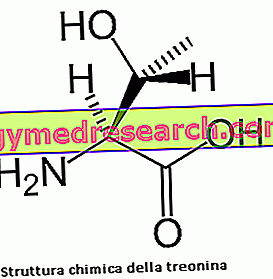Related articles: Pituitary tumors
Definition
The pituitary tumors develop from a "crazed" cell present in this small endocrine gland (also called pituitary gland), located at the base of the skull, in the fossa of the sella turcica, just below the optic chiasm and of the hypothalamus.
The main function of the pituitary gland is the secretion of hormones that regulate numerous functions of the body: growth hormone (GH), prolactin, adrenocorticotropic hormone (ACTH), thyroid stimulating hormone (TSH), luteinizing hormone (LH) and follicle-stimulating hormone (FSH).
Most pituitary tumors are the so-called pituitary adenomas . These neoplasms, although benign in nature, can have important effects on health, since they interfere with the pituitary hormone production and regulation system. Adenomas can be secreting (when they produce excess hormones) or non-secreting ones, and must be distinguished from other tumors affecting the region of the sella turcica, such as meningiomas, craniopharyngioma, metastases and dermoid cysts. Rarely, pituitary tumors are carcinomas.
Most common symptoms and signs *
- Changes in the menstrual cycle
- Amenorrhea
- Asthenia
- Increased appetite
- Weight gain
- Decline in sexual desire
- Depression
- Erectile dysfunction
- Mood disorders
- Articolar pains
- hemianopia
- Galactorrhea
- Gynecomastia
- Insomnia
- Hyperglycemia
- hyperprolactinaemia
- Hypertension
- Hyponatremia
- Hirsutism
- Headache
- Nausea
- Osteopenia
- Osteoporosis
- Weight loss
- Polyuria
- Narrowing of the visual field
- Serous or blood secretions from the nipple
- Cold sensation
- Thirst
- Drowsiness
- Strie rubre
- Tachycardia
- Blurred vision
Further indications
The symptoms that can most commonly indicate the presence of a pituitary tumor include headache, visual field alterations (due to compression of the optical pathways) and endocrinopathies linked to a possible alteration of hormonal secretion at the pituitary level. The latter, in particular, develop when the tumor is secreting or destroys the tissues responsible for the production or secretion of certain hormones (such as the pituitary itself or the hypothalamus). The consequence of a hormone deficiency or excessive production can lead to Cushing's syndrome (ACTH overproduction), diabetes insipidus (if less vasopressin is released), gigantism in children or acromegaly after puberty (hyperproduction of growth hormone ). On the other hand, prolactin hyperproduction, one of the hormones most often produced by pituitary tumors, can lead to alterations in the menstrual cycle, amenorrhea and abnormal production of breast milk (galactorrhoea), decreased sexual desire in women, erectile dysfunction and gynecomastia in men .
Other symptoms caused by an improper stimulation of the target organs by the pituitary gland include: nausea, swelling of the face, drowsiness, changing depression or mood, unexplained weight gain or loss, increased body hair, high blood sugar levels, hypertension, rapid heart rate, increased appetite and difficulty sleeping.
The diagnosis is confirmed by magnetic resonance imaging, which allows the identification of lesions of even small dimensions (less than 2 mm in diameter).
Treatment includes the correction of any endocrinopathy associated with surgery (transsphenoidal hypophysiectomy or craniotomy), radiotherapy (in the case of surgically inaccessible or multifocal tumors) or the use of dopaminergic agonists (for tumors that produce prolactin).



